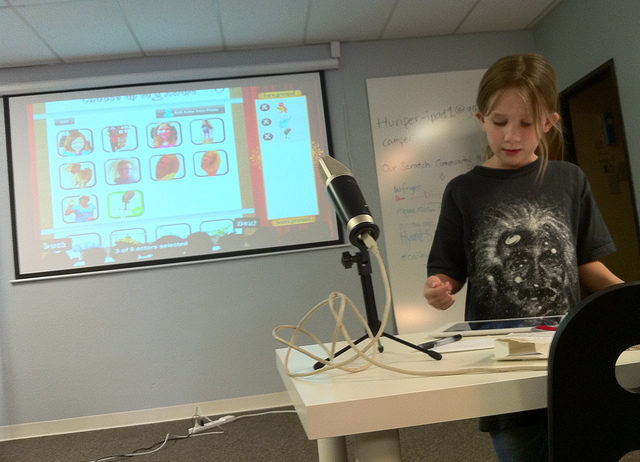The importance of executive functions for learning and education is indisputable. Educators talk broadly about the need for the 21st century skills of thinking and working creatively and collaboratively. The executive functioning skills of planning, organization, social thinking, metacognition, response inhibition and flexibility are the core components of 21st century skills.
In addition, neuroscientists and educators have recently demonstrated the primary role that executive functions play in reading, mathematical and written language skills. For example, the impact of working memory deficits on phonological awareness, reading comprehension, and mental mathematics has been widely studied. Time management (processing speed) and organizational skills are core deficits in youngsters who struggle with written language.
There have been a number of compelling studies that suggest that teaching executive functioning skills to preschool and elementary school students is more important to their academic success than teaching specific academic skills. Longitudinal studies that examine the impact of teaching preschool and elementary school students self-management and planning skills indicate that these students to far better than their peers throughout their academic careers. Unfortunately, in today’s highly-regimented classroom, it is exceedingly difficult to find the time and opportunities to directly teach these skills. In addition, most teachers are not trained to teach executive skills, although many of them recognize the importance of these skills for their students’ academic success.
To assist teachers in better understanding the importance of these executive functioning skills across academic areas, we have compiled an a list of research articles that forcefully asserts why every teacher should become aware of importance of executive skills. that delineates the importance of executive skills. Many of these studies support what good teachers already know-that many students need support for skills such as organization, working memory, planning, and time management more than than need additional drilling in mathematical facts or practice with their handwriting. Here are some of the most useful (and readable) research that can help teachers become experts on executive functions in the classroom.
Research articles on Executive Functions in the Classroom
Barker, Jane E., Semenov, Andrei D., Michaelson, Laura, Provan, Lindsay S., Snyder, Hannah R., & Munakata, Yuko (2014). Less-structured time in children’s daily lives predicts self-directed executive functioning.Frontiers in Psychology, 15 (593), 1-16.
Blair, C., & Razza, R. P. (2007). Relating effortful control, executive function, and false belief understanding to emerging math and literacy ability in kindergarten. Child Development, 78(2), 647-663.
Diamond, A., Barnett, W. S., Thomas, J., & Munro, S. (2007). Preschool program improves cognitive control. Science (New York, NY), 318(5855), 1387. Footnote Reference by Chapter 229
Diamond, Adele (2012). Activities and programs that improve children’s executive functions. Current Directions in Psychological Science, 21(5), 335-341.
Diamond, Adele & Lee, Kathleen (2011). Interventions shown to aid executive function development in children 4 to 12 years old. Science, 333, 959-964.
Halperin, Jeffrey M., Marks, David J., Bedard, Anne-Claude V., Chacko, Anil, Curchack, Jocelyn T., Yoon, Carol A., & Healey, Diane M. (2012). Training executive, attention, and motor skills: A proof-of-concept study in preschool children with ADHD. Journal of Attention Disorders xx(x) 1-11.
Klingberg, Torkel, Fernell, Elisabeth, Olesen, Pernille J., Johnson, Mats, Gustafsson, Per, Dahlstrom, Kerstin, Gillberg, Christopher G., Forssberg, Hans, & Westerberg, Helena (2005). Computerized training of working memory in children with ADHD — A randomized, controlled trial. Journal of the American Academy of Child and Adolescent Psychiatry 44 (2), 177-186.
Li, Lin, Men, Wei-Wei, Chang, Yu-Kai, Fan, Ming-Xia, Ji, Liu, & Wei, Gao-Xia (2014). Acute aerobic exercise increases cortical activity during working memory: A functional MRI study in female college students. PLOS ONE 9(6) e99222.
McClelland, M. M., Cameron, C. E., Wanless, S. B., & Murray, A. (2007). Executive function, behavioral self-regulation, and social-emotional competence. Contemporary perspectives on social learning in early childhood education, 113-137.
Oei, Adam C. & Patterson, Michael D. (2014). Playing a puzzle video game with changing requirements improves executive functions. Computers in Human Behavior 37, 216-228.
Sasser, T. R., & Bierman, K. L. (2012). The role of executive functions skills and self-regulation behaviors in school readiness and adjustment. Society for Research on Educational Effectiveness.
Books
Caine, Renate Nummela, Geoffrey Caine, Carol McClintic, and Karl J. Klimek. Twelve Brain/Mind Learning Principles in Action: Developing Executive Functions of the Human Brain. 2nd Rev. ed. Thousand Oaks, CA: Corwin Press, 2009.
Cooper-Kahn, Joyce and Dietzel, Laurie. Late , Lost, and Unprepared: A Parents’ Guide to Helping Children with Executive Functioning. Bethesda, MD:Woodbine House, 2008.
Cox, Adam J. No Mind Left Behind: Understanding and Fostering Executive Control. The Eight Essential Brain Skills Every Child Needs to Thrive. New York, NY: Penguin Group, 2007.
Dawson, P., Guare, R. Executive Skills in Children and Adolescents, Second Edition: A Practical Guide to Assessment and Intervention (The Guilford Practical Intervention in Schools Series). New York, NY: Guilford Press, 2010.
Dawson, Peg and Richard Guare. Smart But Scattered: The Revolutionary “Executive Skills” Approach to Helping Kids Reach Their Potential. New York, NY: The Guilford Press, 2009.
Dehn, Milton. Working Memory and Academic Learning: Assessment and Intervention. Hoboken, NJ: John Wiley and Sons, 2008.
Galinsky, E. Mind in the Making: The Seven Essential Life Skills Every Child Needs. Harper Paperbacks, 2010.
Gathercole, Susan E. and Tracy Packiam Alloway. Working Memory & Learning: A Practical Guide for Teachers. Thousand Oaks, CA. Sage Publications Ltd., 2008.
Kaufman, C. Executive Function in the Classroom: Practical Strategies for Improving Performance and Enhancing Skills for All Students. Baltimore, MD: Paul H. Brookes Publishing, 2010.
Klingberg Torkel. The Overflowing Brain. New York, NY: Oxford University Press, 2009
McCloskey, George, Perkins, Lisa, and Van Divner, Bob. Assessment and Intervention for Executive Function Difficulties. New York, NY: Routledge, 2009
Meltzer, L. (Ed.) Executive Function in Education: From Theory to Practice. New York, NY: Guilford Press, 2007.
Meltzer, L. Promoting Executive Function in the Classroom. New York, NY: Guilford Press, 2010.
Featured image: Flickr user Wesley Fryer




